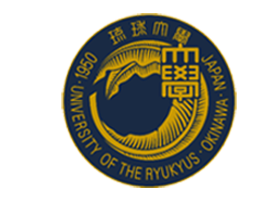Invited Speakers
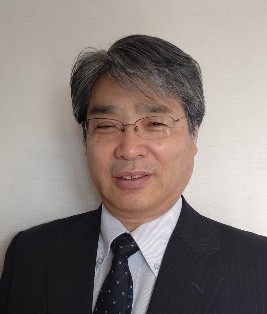
Prof. Yutaka
Ishibashi (Fellow of IEICE)
Aichi Sangyo
University, Japan
Biography: Yutaka
Ishibashi is Dean Professor at the
Department of Business Management, Faculty
of Business Administration, Aichi Sangyo
University, Japan, and Emeritus Professor at
Nagoya Institute of Technology. He earned
his Ph.D. in Computer Science from Nagoya
Institute of Technology in 1990. With over
four decades of experience, he has held
various academic leadership roles including
department chair and college director at
Nagoya Institute of Technology. His research
focuses on communication protocols and
network performance evaluation. Ishibashi is
a Life Senior Member of IEEE and a Fellow of
IEICE, with numerous awards including
lifetime achievement and multiple best paper
recognitions at international conferences.
He has actively contributed to professional
societies such as IEEE, IEICE, IPSJ, ACM,
and ITE, holding leadership positions
including Director of IPSJ Tokai Branch and
Chair of IEEE Nagoya Section. He has chaired
and served as technical program chair for
numerous prestigious international
conferences, and has been guest
editor-in-chief for special issues in
academic journals.

Assoc. Prof. Miloslava (Mia) Plachkinova
Kennesaw State University, USA
Biography: Miloslava (Mia) Plachkinova,
Ph.D. is an Associate Professor of
Information Security and Assurance at
Kennesaw State University, where she also
serves as Assistant Department Chair. She
earned her Ph.D. in Information Systems and
Technology from Claremont Graduate
University and holds multiple professional
certifications, including CISSP, CISA, CCSP,
CISM, CRISC, CDPSE, PMP, and CIPP/US. Dr.
Plachkinova’s research spans cybersecurity,
data privacy, and emerging technologies,
with publications in leading journals such
as Journal of the Association for
Information Systems, Communications of the
Association for Information Systems, and
Journal of Computer Information Systems. She
has secured significant external funding,
including a multi-year NSA GenCyber grant to
advance cybersecurity education. Her
leadership extends to curriculum
development, industry partnerships, and
mentoring students and faculty. Recognized
for research excellence and teaching
innovation, she also serves as an editor and
reviewer for top academic journals and
conferences. Her current projects explore
AI-driven security frameworks, regulatory
challenges in technology adoption, and
improving the quality of healthcare systems.
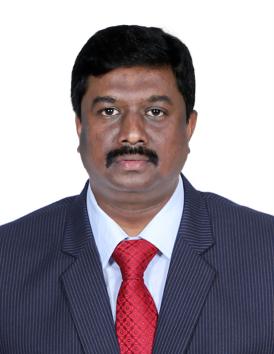
Prof. S.
Balakrishnan,
Vinayaka Mission's
Research Foundation (Deemed to be
University), India
Biography:
Dr.S.Balakrishnan is a Professor and Head of
Department of Computer Science and
Engineering, Aarupadai Veedu Institute of
Technology, Vinayaka Mission’s Research
Foundation (Deemed to be University),
Paiyanoor, Chennai. He has 24 years of
experience in teaching, research and
administration. He has published over 39
books, 10 Book Chapters, 30 Technical
articles in CSI Communications Magazine, 27
technical Blogs, 1 article in Electronics
for You (EFY) magazine, 20 articles in Open
Source for You Magazine and over 150+
publications in highly cited Journals and
Conferences. He has completed 2 funded
projects under DST TIDE and CSRI scheme in
AI applications.
Some of his professional
awards include: Iconic Teacher in Research
Award at Symbiosis University of Applied
Sciences, Indore, Best Patent Award from
IEEE Madras Section for the year 2024,
Certificate of Award with cash prize $250
for 1st place in the International Poster
Challenger by Peeref, Kalpa Acharya Award
(Best researcher Award) Bharath Education
Excellence Awards (BEEA) 2021-22 organized
by BrainOVision, IEEE MAS Best Researcher
Award - 2022 (Age 40 and Below 50) by IEEE
Madras Section, AICTE Lilavati Award 2021-22
winner with 1 Lakh Cash Prize, Best
Performer in the Poster Display at IIC
Regional Meet held at Sathyabama Institute
of Science and Technology Chennai on 21st
July 2022, Best Model/Technology
Presentation Award by IEEE-Nanotechnology
Council Student Chapter IIT Indore, Yuva
Mentor as a Changemaker Award, Faculty with
Maximum Publishing in CSI Communications
2017-2019, International Data Science Writer
of the Year 2019 by Data Science Foundation
UK with cash prize €900, MTC Global
Outstanding Researcher Award, Inspiring
Authors of India, Deloitte Innovation Award
Deloitte for Smart India Hackathon 2018,
Patent Published Award, and Impactful Author
of the Year 2017-18. He acted as a Mentor,
Evaluator cum Jury Panel Member, Grand
finale of SIH 2022 and MANTHAN, Mentor and
Jury member in ASEAN-India Hackathon 2021,
Primary SPOC and Evaluator for Toycathon
2021. He has received an appreciation
certificate for Developing SIH Alumni Portal
and SIH 2022 Portal for Ministry of
Education's Innovation Cell by Ministry of
Human Resource Development, Government of
India and MHRD’s Innovation Cell 25th May
2022.
He has delivered 110+ guest
lectures/seminars in National &
International levels, delivered 30+ keynote
speech/invited speech and chaired 350+
sessions for various National and
International Conferences. He is serving as
a Reviewer and Editorial Board Member of
many reputed Journals and acted as Technical
Program Committee member of National
conferences and International Conferences at
Vietnam, China, America and Bangkok. His
research interests are Artificial
Intelligence, Cloud Computing and IoT. He
has delivered various guest lecture under AI
applications in power grid applications.
Dr.Balakrishnan has acted as mentor in
prestigious IndiaAI Fellowship under the
IndiaAI Mission with a fellowship grant of
₹1,00,000. And he has acted as Mentor in
Kavach 2023 Hackathon Title Winner with 1
Lakh Cash Prize, Mentor in Smart India
Hackathon (SIH) 2020 Title Winner with 1
Lakh Cash Prize. He has 14 Granted
International Patents, 45 Indian Patents on
IoT Applications, 22 Design Patent Grants
and 3 granted Copyrights. Dr. Balakrishnan
has been appreciated under India Book of
Records 2021 for filing 18 patents over a
period of 15 months. He is acting as an
Author at IEEE Teaching Excellence Hub, IEEE
EduMentor Connect Program mentor, IEEE
YESISI’12 2023 Publicity Ambassador, IEEE.TV
Region 10 Global Ambassador, IEEE Brand
Ambassador, IEEE Publicity Ambassador, IEEE
Senior Member, T4 Ambassador and Bentham
Science Publisher Brand Ambassador.
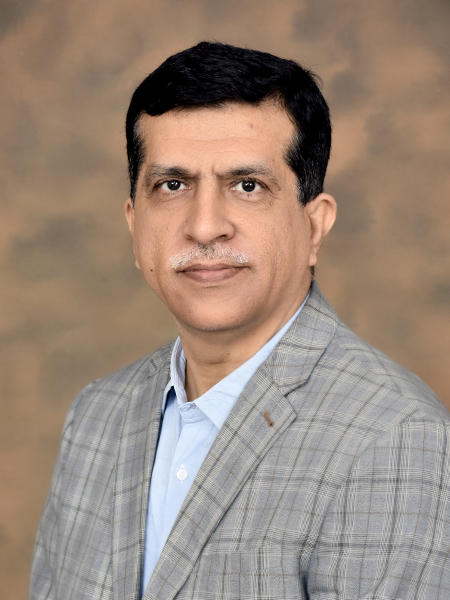
Prof. Tariq
Rahim Soomro
Institute of Business
Management, Pakistan
Biography: Dr.
Tariq Rahim Soomro, Professor of Computer
Science, and Rector at Institute of Business
Management, has received BSc (Hons) and M.Sc
degrees in Computer Science from University
of Sindh, Jamshoro, Pakistan and his PhD in
Computer Applications from Zhejiang
University, Hangzhou, China and became the
first Pakistani to receive all three degrees
in the field of Computer Science. He has
more than 30 years of extensive and diverse
experience as an administrator, computer
programmer, researcher, and teacher. As an
administrator, He served as Coordinator,
Head of Department, Head of Faculty, Dean of
Faculty, Head of Academic Affairs and having
wide experience in accreditation related
matters, including ABET USA, NCEAC & HEC
Pakistan, KHDA United Arab Emirates (UAE)
and Ministry of Higher Education and
Scientific Research (MoHESR), UAE. He has
published over 100 peer-reviewed papers. He
has been a senior member of IEEE since 2005
and IEEE Member since 2000. He is currently
serving as Chair IEEE Karachi Section
(2024-25) and IEEE Computer Society R10
Southern Area Coordinator of Computer
Society (2020-25). He is member Task Force
on Arabic Script IDNs by Middle East
Strategy Working Group (MESWG) of ICANN,
Member Editorial Board of several research
Journals and also served as Technical
Program Committee Member of several national
and international conferences. He also
received the ISOC Fellowship to the Internet
Engineering Task Force (IETF) for the 68th
Internet Engineering Task Force (IETF)
meeting. He is first Pakistani to become
IEEE Computer Society Distinguished Visitor
(2021-2023) and also became the first
Pakistani to be selected by the IEEE
Computer Society to the ‘Inaugural Class of
IEEE Computer Society Distinguished
Contributors'.
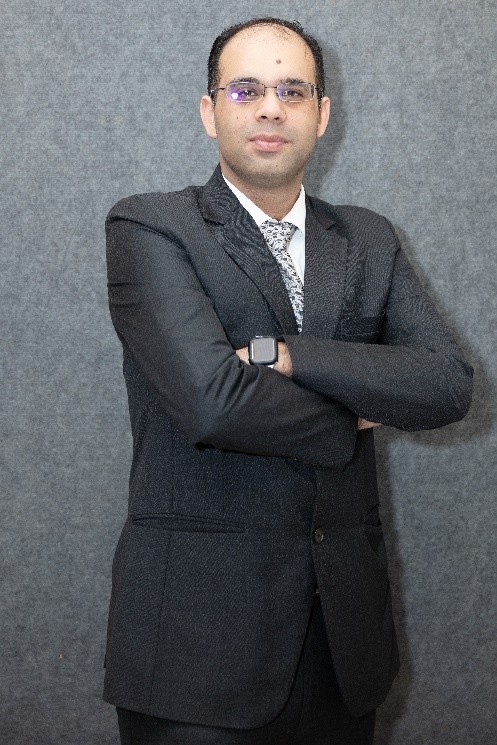
Prof. Anand Nayyar
Duy Tan University, Vietnam
Biography: Dr. Anand Nayyar received Ph.D (Computer Science) from Desh Bhagat University in 2017 in the area of Wireless Sensor Networks, Swarm Intelligence and Network Simulation. He is currently working in School of Computer Science-Duy Tan University, Da Nang, Vietnam as Professor, Scientist, Vice-Chairman (Research) and Director- IoT and Intelligent Systems Lab. A Certified Professional with 280+ Professional certifications from CISCO, Microsoft, CompTIA, Amazon, Alibaba Cloud, Oracle, Google, Salesforce, Tableau, FinOps, Beingcert, EXIN, GAQM, Cyberoam and many more. Published more than 300+ Research Papers in various High-Quality ISI-SCI/SCIE/SSCI Impact Factor- Q1, Q2, Q3, Q4 Journals cum Scopus/ESCI indexed Journals, 80+ Papers in International Conferences indexed with Springer, IEEE and ACM Digital Library, 60+ Book Chapters in various SCOPUS/WEB OF SCIENCE Indexed Books with Springer, CRC Press, Wiley, IET, Elsevier with Citations: (Google Scholar): 22500+, H-Index: 77 and I-Index: 311; (Scopus): 12700+; H-index: 60. Member of more than 60+ Associations as Senior and Life Member like: IEEE (Senior Member) and ACM (Senior Member). He has authored/co-authored cum Edited 70+ Books of Computer Science. Associated with more than 600+ International Conferences as Programme Committee/Chair/Advisory Board/Review Board member. He has completed 1 Grassroot and 1 ASEAN Project. He has 18 Australian Patents, 16 German Patents, 4 Japanese Patents, 44 Indian Design cum Utility Patents, 13 UK Patents, 1 USA Patent, 3 Indian Copyrights and 2 Canadian Copyrights to his credit in the area of Wireless Communications, Artificial Intelligence, Cloud Computing, IoT, Healthcare, Drones, Robotics and Image Processing. Awarded 56 Awards for Teaching and Research—Young Scientist, Best Scientist, Best Senior Scientist, Asia Top 50 Academicians and Researchers, Young Researcher Award, Outstanding Researcher Award, Excellence in Teaching, Best Senior Scientist Award, DTU Best Professor and Researcher Award- 2019, 2020-2021, 2022, 2022-2023, 2023-2024, Distinguished Scientist Award by National University of Singapore, Obada Prize 2023, Lifetime Achievement Award 2023, 2024; Asian Admirable Achievers 2024; Distinguished Academic Leader 2024, Lifetime Achievement Award 2024 and many more.
He is listed in Top 2% Scientists as per Stanford University (2020, 2021, 2022, 2023, 2024, 2025), Ad Index (Rank No:1 Duy Tan University, Rank No:2 Computer Science in Viet Nam) and Listed on Research.com (Top Scientist of Computer Science in Viet Nam- National Ranking: 2; D-Index: 56; World Ranking: 3694).
He is acting as Associate Editor for Computer Communications (Elsevier), International Journal of Sensor Networks (IJSNET) (Inderscience), Tech Science Press- IASC, Cogent Engineering, Human Centric Computing and Information Sciences (HCIS), IET-Quantum Communications, IET Networks, IEEE Transactions on Artificial Intelligence (IEEE TAI), Indonesian Journal of Electrical Engineering and Computer Science, IJFC, IJISP, IJDST, IJCINI, IJGC, IJSIR, IJBDCN, IJNR, IJSI, IJIES. He is acting as Managing Editor of IGI-Global Journal, USA titled “International Journal of Knowledge and Systems Science (IJKSS)”. He has reviewed more than 5700+ Articles for diverse Web of Science and Scopus Indexed Journals. He is currently researching in the area of Wireless Sensor Networks, Internet of Things, Swarm Intelligence, Cloud Computing, Artificial Intelligence, Drones, Blockchain, Cyber Security, Healthcare Informatics, Big Data and Wireless Communications.
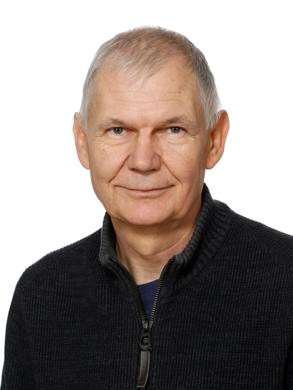
Prof. Hans-Henrik Hvolby
act2learn, Denmark
Speech Title: 3PL challenges in Retail Supply Chains
Abstract: The presentation deals with the challenges that 3PL providers experience in today's retail supply chains. Intense competition among retailers limits collaboration and the sharing of information throughout these networks. Case studies from the food and hardware industries highlight the challenges encountered and explore potential pathways for enhancing supply chain visibility and streamlining warehouse operations.
Biography: Professor Hans-Henrik Hvolby is a
senior researcher and project manager at
act2learn, which is an industry-oriented
division at the University College of
Northern Denmark. His research is mainly
within supply chain planning and integration
with a special focus on transport and
maritime logistics. He was Professor at
Aalborg University from 2001 to 2023 as well
as co-founder and manager of a strong
industrial research unit titled Centre for
Logistics at Aalborg University, being a
core player in applying and managing
industrial research projects and industry
networks. He has been directly involved in
29 larger national and European industrial
research projects, of which he has been
project manager of more than half. Further,
he has published more than 175 peer-reviewed
papers in academic journals and conferences,
supervised 14 Ph.D. students, reviewed more
than 20 Ph.D. projects, editorial board
member of 4 international journals,
organised more than 50+ national and
international conferences, seminars and
workshops as well as being a visiting
professor at University of Tasmania
(Australia), University of South Australia
and Norwegian University of Science and
Technology.
Assoc. Prof.
Herminiño C. Lagunzad
National
University, Philippines
Biography:
Herminiño C. Lagunzad is a seasoned IT
educator and researcher with a strong focus
on intelligent systems, cybersecurity, and
data-driven technologies. His research
interests include IoT applications, data
mining and analytics, information security,
machine learning, and medical informatics.
He has presented and published papers in
multiple IEEE-indexed conferences, with
notable works on DNS sinkholing, AES-based
encryption using Raspberry Pi, and wearable
technologies for rehabilitation.
He has
served as Session Chair and Technical
Committee Member for international
conferences such as ICINT, PRAI, ICCAE, and
ICCCS, demonstrating his active involvement
in the global research community. His
technical skillset includes programming
(Java, Python, TensorFlow), database
management (MS SQL, MySQL), and network
technologies (TCP/IP, DHCP, routers,
switches).
With nearly a decade of
teaching experience in various universities,
Mr. Lagunzad has delivered courses in system
architecture, software engineering, web
technologies, and data management. He
remains dedicated to advancing innovation in
the IT field through research, instruction,
and collaborative engagement.

Prof. Samuel Boateng
Marymount University, USA
Biography:
Dr. Samuel K. Boateng is an accomplished
cybersecurity executive, visionary
strategist, and respected scholar whose
career spans more than two decades across
Fortune 500 enterprises, government
institutions, and higher education.
Celebrated for his exceptional ability to
unify deep technical mastery with high-level
strategic leadership, he has built resilient
digital ecosystems during an era of rapid
innovation and evolving cyber threats.
As
Chief Executive Officer of Slamm
Technologies in the United States and Ghana,
Dr. Boateng has championed transformative
advancements in Security Operations,
leveraging artificial intelligence, machine
learning, cloud security, and automation to
engineer world-class cyber defense
architectures. His leadership also extends
to philanthropy as President of The Slamm
Foundation, where he drives educational
empowerment, digital inclusion, and global
workforce development.
A
scholar-practitioner dedicated to expanding
the boundaries of knowledge, Dr. Boateng is
actively engaged in Machine Learning,
Quantum Computing, and AI research. He
serves as an Adjunct Professor at Marymount
University and Northern Virginia Community
College, where he trains the next generation
of cybersecurity leaders through rigorous,
practice-driven, and forward-thinking
instruction.
Dr. Boateng holds a Doctor
of Science (PhD) in Cybersecurity from
Marymount University, master’s degrees from
Georgetown University and George Washington
University, and a bachelor’s degree in
Information Security from Strayer
University.
Blending wisdom, innovation,
and strategic foresight, Dr. Samuel K.
Boateng stands as a leading voice shaping
the future of cybersecurity, digital
resilience, and global technology
leadership.
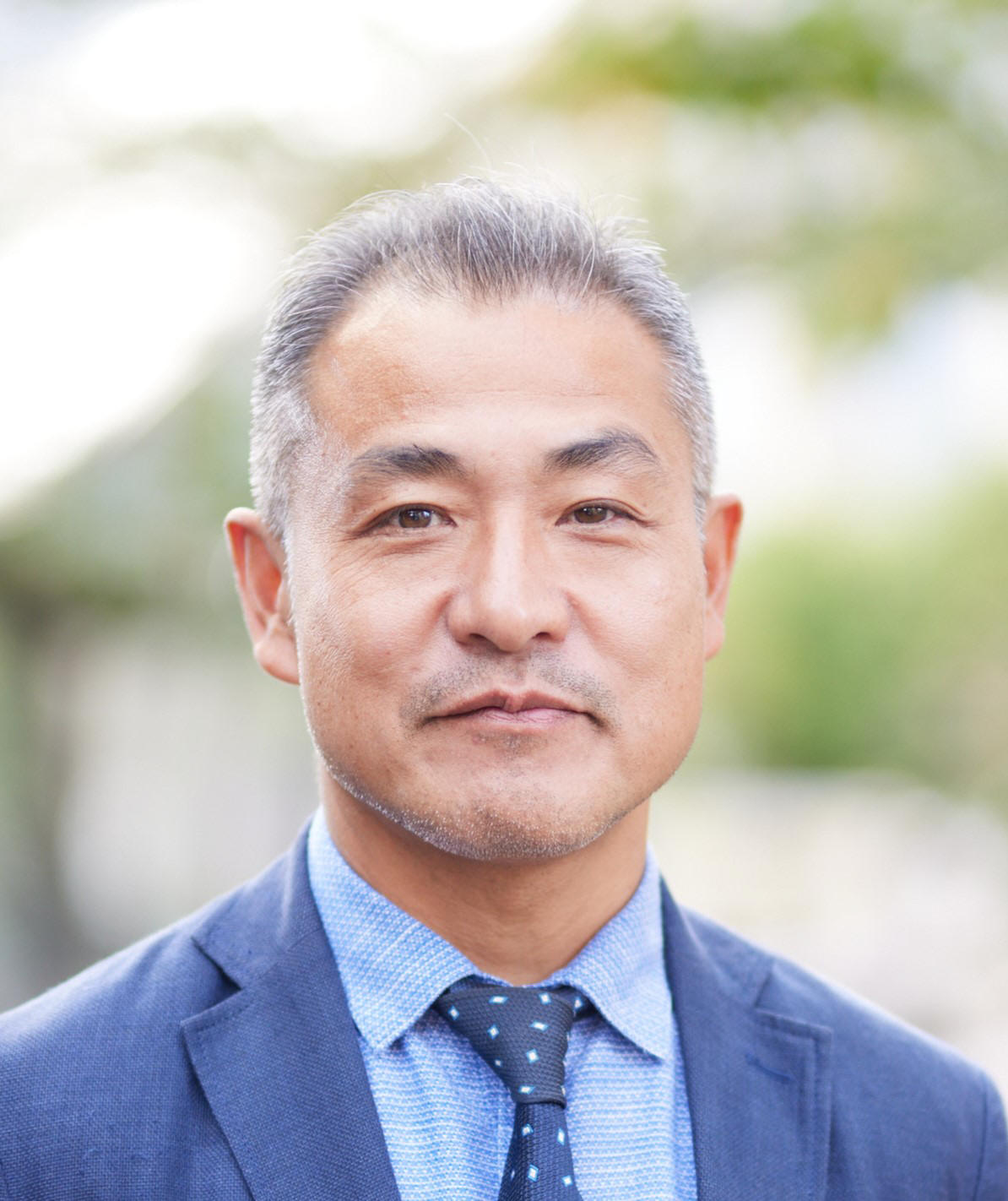
Prof. Kazuyuki
Shimizu
Meiji University, Japan
Biography: Prof. Dr. Kazuyuki Shimizu is a
Professor at the Faculty of Business
Administration, Meiji University, Japan. His
research focuses on corporate governance,
stakeholder theory, and digital
transformation, with a particular interest
in blockchain technologies and ESG
investment strategies. He has been a
visiting scholar at the University of
Limerick, Ireland, and regularly presents
his work at international conferences,
including ETHICOMP and other conferences.
Prof. Shimizu's recent research explores
the impact of digital innovation on
corporate governance and sustainability, and
he has published extensively in both
Japanese and international academic
journals. His practical experience includes
working in institutional investor relations
at German investment banking and Barclays
Capital in Tokyo, providing him with a
unique blend of academic and industry
insights.

Assoc. Prof. Topside
E. Mathonsi
Tshwane University of
Technology, South Africa
Biography:
Prof. Topside Ehleketani Mathonsi holds a
Doctor of Computing (DComp): Information
Technology, which he completed in March 2020
at TUT, South Africa. He is currently an
Associate Professor and HoD in the
Department of Information Technology at TUT.
He has successfully supervised and
co-supervised 21 master's students and 1
doctoral student. He has been an author and
co-author of 3 monograph books, 6 book
chapters, 35 journal articles, and 76
conference papers at national and
international conferences. His research
interests include analysis and design of the
5G and beyond networks, cybersecurity,
wireless sensor networks, the Internet of
Things, and ubiquitous and green computing
for sustainable development.
Over
the past years, Prof Mathonsi has received
awards and nominations which include the
Younger Researcher of the Year 2024
(winner), Faculty of ICT, TUT; Best Computer
Science Reviewer, SAICSIT 2025; Nominated
for the TW Kambule-NSTF 2024/2025 Award:
Emerging Researcher; Future Star, South
Africa Cloud Track Team 2, Huawei ICT
Regional Competition 2024-2025, Southern
Africa. Younger Research of the Year 2023
(winner); Emerging Researcher of the Year
(runner-up); Senior Researcher of the Year
(runner-up), Faculty of ICT, TUT; Nominated
for the TW Kambule-NSTF 2023/2024 Award:
Emerging Researcher; Finalists of the
IITPSA's Dynamism in ICT Youth Award 2022;
Younger Research of the Year 2021 (Merit
Award), Faculty of ICT, TUT; Institutional
Award, Emerging Researcher of the Year
(Male) 2021 (Merit Award), TUT.
Institutional Award, Research in Training of
the Year (Male) 2019-2020, TUT; Emerging
Researcher of the Year 2019-2020, Faculty of
ICT, TUT; Lecturer of the Year 2018 (Merit
Award), Faculty of ICT, TUT; Younger
Research of the Year 2017, Faculty of ICT,
TUT; Excellent Teacher/Instructor, Huawei
ICT Skills Competition Southern Africa
2017-2018 & 2020; and best student paper
award at the WCECS 2014. He has served as a
TCP member for several IEEE conferences and
a reviewer in ISI/Scopus-indexed journals.

Assoc. Prof.
T. Velmurugan
University of Madras, India
Biography: Dr.
T. Velmurugan is worked as Associate
Professor and Head (Rtd), PG and Research
Department of Computer Science, Dwaraka Doss
Goverdhan Doss Vaishnav College,
Chennai-600106, India. He has elected as a
Member-Syndicate, University of Madras. He
holds Ph.D. degree in Computer Science from
the University of Madras. He has 32 years of
teaching experience. He guided more than 300
M.Phil. Research Scholars. Also, he guided
30 Ph.D. scholarsand currently guiding 1
Ph.D. scholars. He has published more than
250 articles in UGC Care List, SCOPUS and
SCI indexed journals. Also, he elected and
served as a Senate Member from Academic
Council, University of Madras. He has a lot
of administrative experiences. He served as
advisory board member to many academic
institutions in and around Tamil Nadu,
India. He was an invited speaker and keynote
speaker for many international conferences
around the world. He served as a nominated
Senate Member in the Middle East University,
Dubai, UAE for a period of three years. He
is a member in Board of studies for many
autonomous institutions and Universities.
Also, he organized international Conferences
and workshops. In addition, he was a
resource person for various national
workshops entitled "Scientific Research
Article Writing and Journal Publications"
and many of the recent topics in Computer
Science. He is an Editorial Board Member of
13 International Journals. He also a
reviewer in many peer reviewed journals like
Elsevier, Springer, IEEE and IOSPress
Journals etc. He is the Chair person for the
Government of Tamil Nadu State for XII
standard book titled as “Electronics and
Hardwares”. Further, he is a visiting
faculty for M.Phil., Course for various
universities throughout India. His H index
is 24 and i10 index is 35. His area of
specialization includes Data Mining,
Artificial Intelligence, Machine Learning,
Network Security, Big Data Analytics, Data
Science and etc.
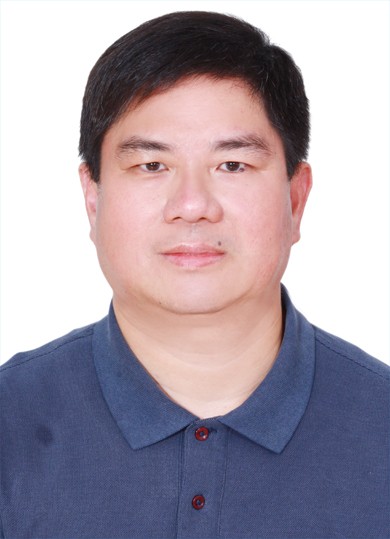
Assoc. Prof. Wei-Min Huang
National Chung Cheng University, Taiwan
Speech Title: Determinants of Family Members’ Adoption of Long-Term Care Mobile Applications: An Integration of TAM and ISSM
Abstract: This study investigates factors influencing family members’ adoption of long-term care (LTC) mobile applications by integrating the Technology Acceptance Model (TAM) and the Information Systems Success Model (ISSM). Data were collected from 164 valid respondents and analyzed using PLS-SEM (SmartPLS 4) to evaluate both the measurement and structural models, including out-of-sample predictive performance. The results indicate that information quality and service quality significantly influence perceived usefulness, while system quality and service quality significantly influence perceived ease of use. Convenience emerged as a strong predictor of behavioral intention, while privacy risk was non-significant. These findings offer novel theoretical insights into the integration of TAM and ISSM within the LTC context and provide concrete implications for the design and management of LTC mobile services.
Biography: Dr Wayne W.M. Huang, MB/MSc, LLM, MPH, DrPH, PhD in Law
Born in 1964 in Kaohsiung City, Taiwan
Professor, Graduate Institute of Healthcare Information Management, College of Management, National Chung Cheng University, Taiwan (since 2008)
Director of Health Research Center, Taiwan Law Foundation, Taiwan (since 2019)
Senior Researcher & visiting Fellow of Fulbright Scholarship in Public Health /Medicine, USA (2012~2013)
MPH & DrPH, Tulane University School of Public Health & Tropical Medicine, USA (1993~1998)
PhD in Law (JD equivalent), College of Law, National Chung Cheng University, Taiwan (2009~2017)
MB/MSc, College of Medicine, National Taiwan University, Taiwan (1984~1991)
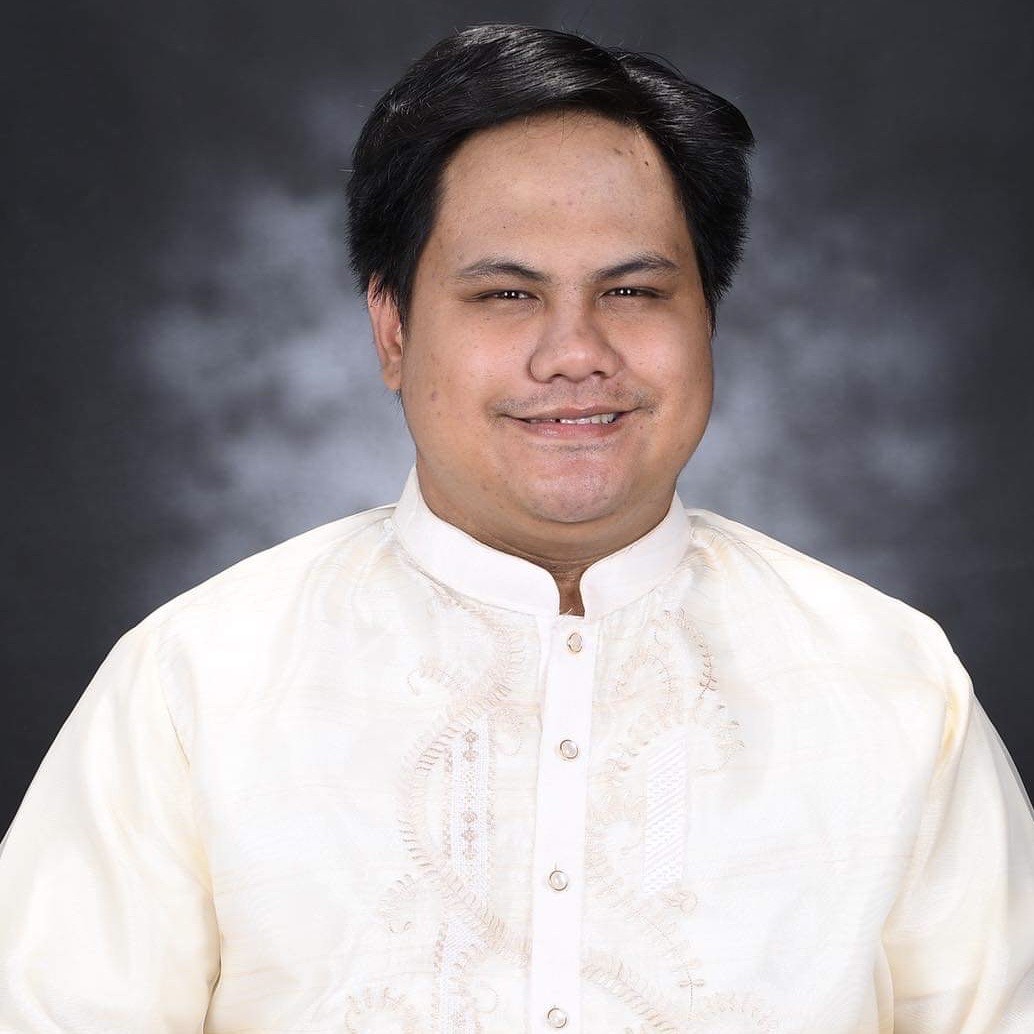
Asst. Prof. John Ivan
C. Maurat
National University,
Philippines
Biography: Asst. Prof.
John Ivan C. Maurat is an IT Educator with
over 7 years of experience, specializing in
teaching IT professional and core courses.
He holds a Master of Information Technology
and a Bachelor of Science in Information
Technology and has completed the academic
requirements for the Doctorate in
Information Technology with a specialization
in Social Computing at National University –
Manila. He is also a Greenbelt Lean Six
Sigma Certified professional and Microsoft
Innovative Educator Expert.
He is deeply
committed to academic excellence and is
passionate about integrating research,
teaching, and technology to create
meaningful and impactful learning
experiences. His research contributions span
across various domains, including
AI-assisted learning in programming,
educational game development, smart systems,
sentiment analysis, augmented and virtual
learning environments, social network
analysis, and digital transformation in
education.
He is currently affiliated
with National University – Manila as an
Assistant Professor 4 and has authored and
co-authored numerous research papers that
reflect his dedication to innovation and
inclusive education in the digital age.
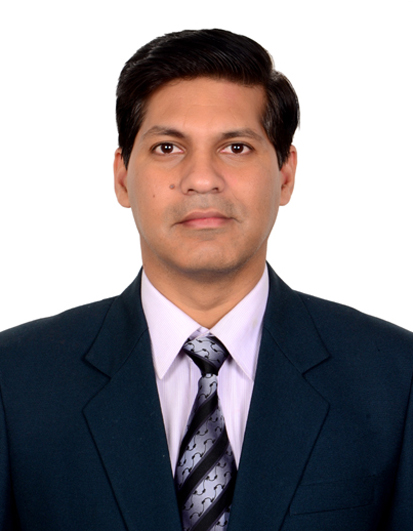
Dr. Sanjeev Shukla
Indian
Institute of Technology Roorkee, India
Speech Title: Phishing Attack Detection: Trends, Challenges, and Emerging AI-Based Solutions
Abstract: Phishing attacks remains a major vector for cyberattacks, exploiting trust and impersonating legitimate entities to steal sensitive information and compromise digital systems. With the rapid evolution of attack techniques—ranging from deceptive emails and fraudulent websites for obfuscation to SMS and social media–based scams—traditional detection mechanisms often struggle to keep pace. As a result, timely and accurate detection of phishing attacks has become a critical component of modern cyber defense strategies. This presentation provides an overview of phishing attack detection, focusing on both traditional and emerging approaches, highlighting recent trends, challenges, and advancements in the field. It discusses the role of machine learning, deep learning, and large language models in identifying phishing attempts, along with key features used in detection such as URL characteristics, content analysis, user behavior patterns and header analysis. The talk also addresses practical issues including adversarial tactics, false positives, and deployment challenges in real-world environments. Finally, emerging research directions and best practices for strengthening phishing detection frameworks are outlined, aiming to enhance cyber resilience across organizations and end users.
Biography: Sanjeev Shukla is a Senior
Scientific Officer at the Institute Computer
Center, Indian Institute of Technology
Roorkee, India. He holds his Ph.D. and
M.Tech. degree from Department of Computer
Science and Engineering IIT Roorkee, where
his research focused on emerging challenges
in cyber security and digital forensics.
Prior to joining IIT Roorkee, he served as a
Computer Engineer at the Indian Institute of
Technology Kanpur, gaining significant
hands-on experience in advanced computing
systems and institutional IT infrastructure.
With over two decades of professional
experience, he has worked extensively across
academia, government organizations, and
private enterprises, contributing to a wide
spectrum of technology-driven work. His
expertise spans Information Technology
operations, network administration, security
architecture, incident response, cyber
security management, and the development of
secure digital environments for large
institutions.
He is an active researcher
and is associated with various high impact
journal like Springer Nature International
Journal for Information Security, Journal of
Supercomputing, Transactions on Emerging
Telecommunications Technologies as reviewer.
He is also associated with various
prestigious conferences as technical
committee member. His research interests
include Network Forensics, Anti-Phishing
Techniques, Network Security, Cyber Fraud
Detection and Investigation, Email Security,
and Memory Forensics.
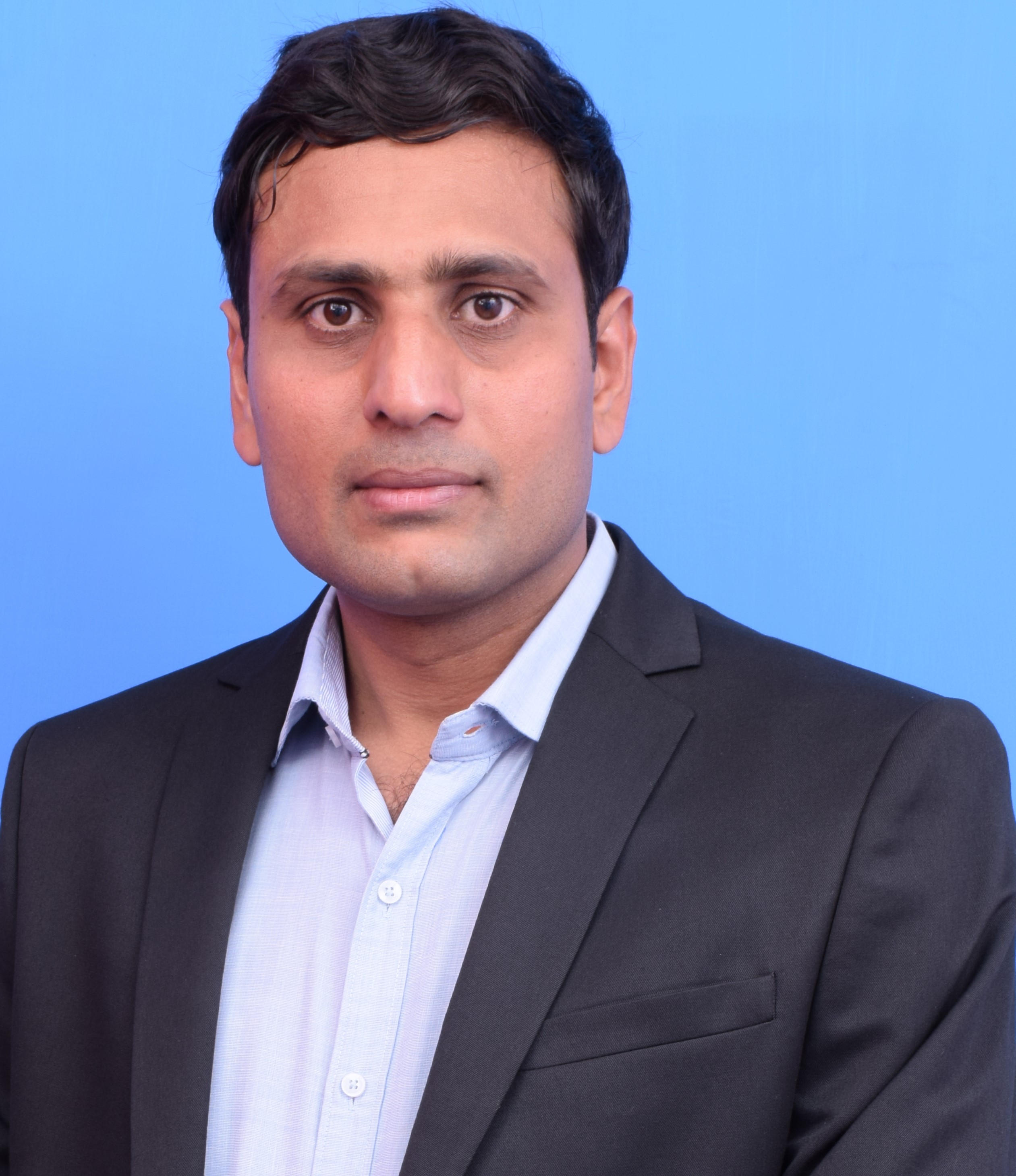
Dr.
Judhistir Mahapatro
National
Institute of Technology (NIT) Rourkela,
India
Biography: Judhistir Mahapatro is an
Assistant Professor (Grade-I) in the
Department of Computer Science and
Engineering at the National Institute of
Technology (NIT) Rourkela, India. He
received his Ph.D. degree from the Indian
Institute of Technology (IIT) Kharagpur in
2015. He earned his M.Tech. and B.Tech.
degrees in Computer Science and Engineering
from NIT Hamirpur and Jawaharlal Nehru
Technological University, Hyderabad, in 2009
and 2006, respectively.
Before joining
NIT Rourkela, he served as an Assistant
Professor at NIT Delhi and NIT Uttarakhand.
He has over 10 years of teaching experience.
At NIT Uttarakhand, he also held the
position of Head of the Department for over
a year.
Under his supervision, three
Ph.D. scholars have graduated, and five more
are currently pursuing their research. He
has published over 30 research papers in
reputed peer-reviewed journals and
conference proceedings. He received the Best
Paper Award at IEEE IEMTRONICS 2021, held in
Toronto, Canada.
He was the Convenor and
Organizing Secretary of the Fourth Edition
of ICADCML 2023. He also served as a Session
Chair at the 12th International Conference
on Intelligent Systems and Embedded Design
(ISED 2024), as well as at the 2024 IEEE
Students Conference on Engineering and
Systems (SCES-2024). He has served as a
Technical Program Committee (TPC) member for
several prestigious conferences, including
IEEE ICC (2021–2024), ICIoT 2024, and ICINT
2024. He is also a member of the IEEE.
His current research interests include the
design and development of protocols for
Wireless Networks, Vehicular Ad Hoc Networks
(VANETs), Wireless Body Area Networks,
Heterogeneous Networks, and the Internet of
Things (IoT).
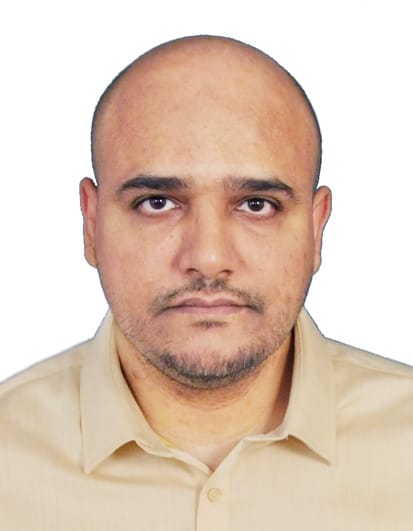
Asst. Prof.
Basheer M. Al-Ghazali (Fellow of HEA, World
Top 2% Scientists for Citation Impact since
2025 of Stanford University's List)
King
Fahd University of Petroleum & Minerals,
Saudi Arabia
Speech Title:
Automation in Tourism: The Role of Robotics
and AI in Redefining Service Delivery
Abstract: The tourism and hospitality
sector is undergoing a significant
transformation driven by the growing
integration of robotics and automation
technologies across various service domains.
This paper provides a comprehensive
systematic review of the global
landscape—analyzing current trends,
implementation challenges, and emerging
opportunities related to the use of robotics
and automation in tourism service
environments. Based on an extensive review
of recent scholarly research, industry
reports, and real-world implementations, the
study explores the application of
technologies such as service robots, smart
kiosks, autonomous delivery tools, and
AI-enabled customer interaction platforms
across diverse tourism contexts, including
hotels, airports, restaurants, and tourist
attractions. The analysis reveals that
robotics and automation have the potential
to improve operational efficiency, enhance
service quality, offer personalized guest
experiences, and mitigate labor
shortages—especially those intensified by
global disruptions like the COVID-19
pandemic. Nevertheless, the review also
highlights significant obstacles to broader
adoption, including high initial costs,
inadequate infrastructure, employee
resistance, and concerns related to the
authenticity of service in human–robot
interactions. Furthermore, the paper
explores new frontiers in the development of
smart tourism ecosystems, collaborative
human–robot service models, edge-based AI
applications, and adaptive service systems
that respond to contextual variables. The
review concludes by outlining a strategic
roadmap for future research and industry
practice, aimed at promoting ethical,
human-centered, and sustainable automation
in tourism. These insights serve as a
valuable resource for scholars, technology
providers, tourism managers, and
policymakers seeking to navigate and shape
the evolving role of automation in service
delivery.
Biography: Dr.
Basheer M. Al-Ghazali is an Assistant
Professor of Technology Management and
Entrepreneurship at King Fahd University of
Petroleum & Minerals (KFUPM), Saudi Arabia,
where he previously served as Head of the
Department of Business Administration. He
holds a B.S. in Computer Engineering and an
MBA from KFUPM, as well as a Ph.D. in
Technology Management from Universiti
Teknologi Malaysia.
Dr. Al-Ghazali is a
Fellow of the Higher Education Academy
(HEA), UK, and is recognized among the Top
2% of Scientists Worldwide by Stanford
University in 2025. He has authored over 30
peer-reviewed journal articles and multiple
book chapters, with his work appearing in
several high-impact international journals.
His research interests span digital
transformation, digital entrepreneurship,
AI-enabled services, technology adoption,
innovation management, and sustainability.
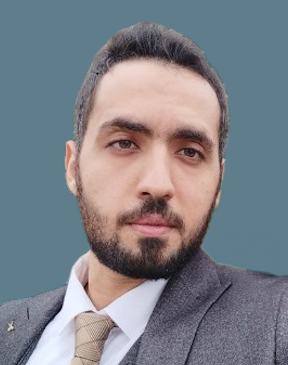
Asst. Prof. Mohammed
Alaa Ala'anzy
SDU University, Kazakhstan
Biography: Mohammed Alaa Ala'anzy
(Member, IEEE) received his Ph.D. in
Computer Science from Universiti Putra
Malaysia (UPM) in 2023. He currently serves
as an Associate Professor at Suleyman
Demirel University (SDU). Dr. Ala'anzy
specializes in advanced fields such as
algorithms, cloud computing, green
computing, load balancing, task scheduling,
fog computing, and the Internet of Things
(IoT). He is widely recognized for his
significant contributions to the academic
community through numerous high-impact
journal and conference publications.
Additionally, Dr. Ala'anzy serves as a
respected reviewer for prestigious journals,
including IEEE, Elsevier, and Springer. He
is also a member of the Dissertation Council
(Senate) at SDU and plays an essential role
on the admissions committee, which evaluates
candidates for the Kazakhstan government
grant program. Furthermore, he is a member
of the International Program Committee for
the 2025 12th International Conference on
Soft Computing and Machine Intelligence
(ISCMI) in Melbourne, Australia, as well as
a member of the Advisory Committee for the
2025 5th International Conference on
Technological Advancements in Computational
Sciences (ICTACS 2025), organized by Amity
University in Tashkent, Uzbekistan.
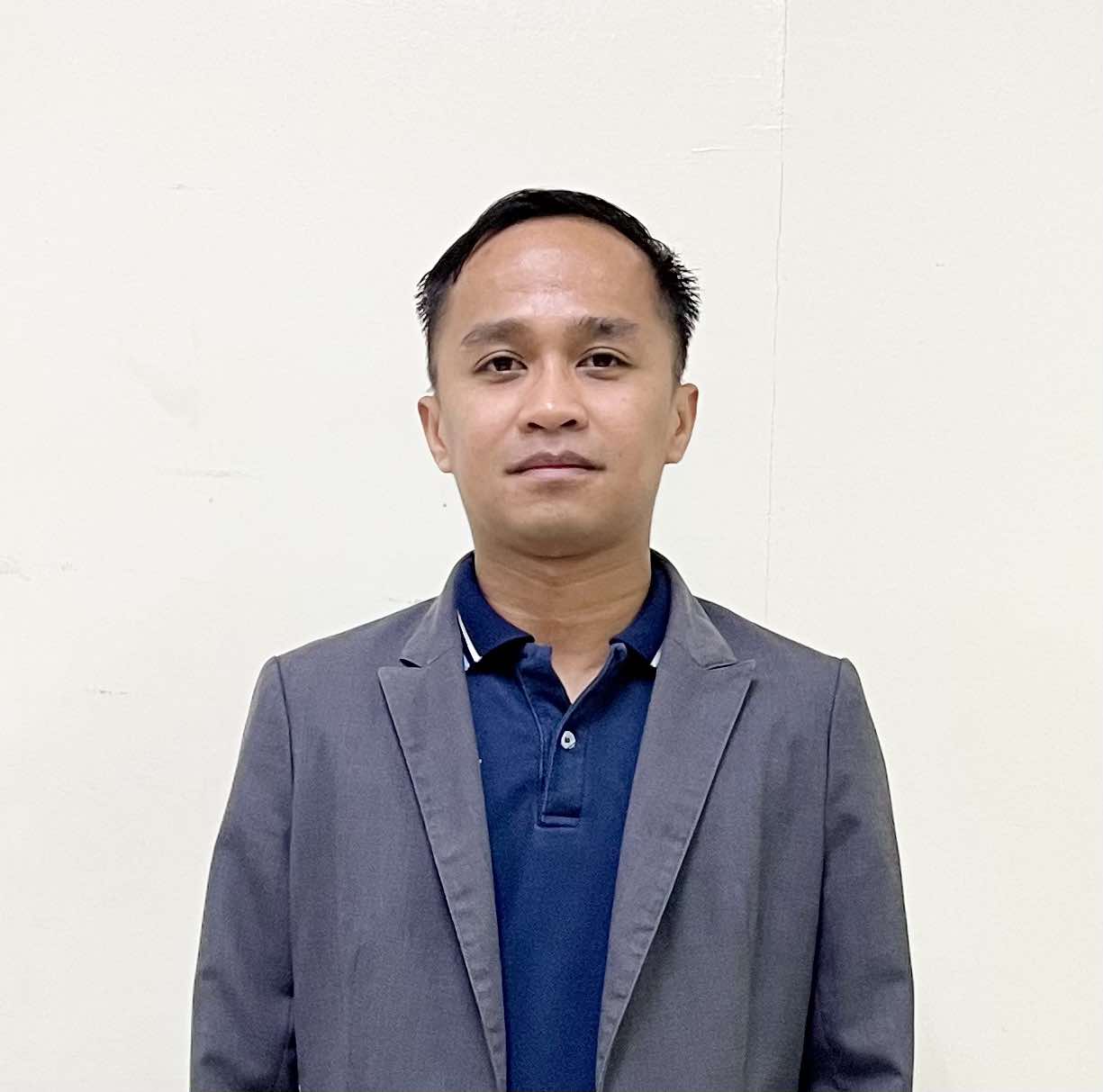
Asst. Prof.
Roger C. Primo Jr.
National University,
Philippines
Biography: Roger
C. Primo Jr. is an Assistant Professor III
at National University Philippines,
currently pursuing his Doctorate in
Information Technology. He holds a Master of
Science in Information Technology and is a
licensed professional teacher. With
extensive experience in both academia and
administration, he has served as IT Program
Chair and MIS Director, contributing to
institutional IT strategy and curriculum
development.
Prof. Primo is a Microsoft
Innovative Educator Expert and a Certified
Cyber Defense Educator. His research
interests include artificial intelligence,
blockchain technology, data analytics
software, decision support systems, and IT
management. He has presented his work in
numerous research conferences and actively
serves on technical committees in
international academic events.
He is a
member of the Institute of Electrical and
Electronics Engineers (IEEE), the Philippine
Society of Information Technology Educators
(PSITE), and the Armed Forces of the
Philippines Reserve Command, where he serves
as an IT Specialist.

Dr. Jacek
Nazdrowicz
Fujitsu Global Delivery
Center, Poland
Speech Title:
IOWN: A Revolution in Future Communication –
From Optical Fiber to Intelligent Networks
Abstract: The Innovative Optical and
Wireless Network (IOWN) initiative
represents a transformative leap in the
evolution of digital communication. As the
demands on global networks continue to
grow—driven by artificial intelligence,
immersive media, autonomous systems, and the
Internet of Things—traditional architectures
are reaching their limits in terms of
latency, bandwidth, and energy efficiency.
IOWN addresses these challenges by
introducing a new paradigm built on
ultra-high-speed, low-latency optical
transmission, advanced wireless
technologies, and intelligent data
processing frameworks.
This presentation
will explore the foundational components of
IOWN, including the All-Photonics Network
(APN), which replaces conventional
electronic transmission with photonic
communication to dramatically reduce latency
and power consumption. We will also examine
the role of Digital Twin Computing and
Cognitive Foundation technologies in
enabling real-time decision-making,
predictive analytics, and seamless
integration between cyber and physical
systems.
Real-world applications will be
highlighted across key sectors such as
industry (smart factories and predictive
maintenance), healthcare (remote diagnostics
and robotic surgery), transportation
(autonomous mobility and traffic
optimization), and education (immersive
learning environments). These examples will
illustrate how IOWN supports the development
of inclusive, resilient, and sustainable
digital societies.
Finally, the talk will
address the broader implications of IOWN for
global infrastructure, including its
alignment with environmental goals, its
potential to accelerate 6G deployment, and
its role in shaping a human-centric network
era. Attendees will gain insight into how
IOWN is not only redefining connectivity but
also laying the groundwork for a smarter,
more responsive, and ethically grounded
digital future.
Biography: Jacek
Nazdrowicz, PhD - is a Senior System
Architect at Fujitsu Global Delivery Center
in Poland and a Global Fujitsu Distinguished
Engineer in Network Technologies. He is also
employed at Lodz University of Technology in
the Department of Microelectronics and
Computer Sciences, where he contributes to
academic research and education in
electronics, computer science, and power
engineering. He holds a Ph.D. in Economics
and Management from Lodz University of
Technology, complemented by multiple Master
of Science degrees in Physics, Mathematics,
Computer Science, Electronics, Power Energy,
and Management.
Since joining Fujitsu in
2016, he has held key technical leadership
roles, including Regional Distinguished
Engineer and System Engineer Expert
specializing in Storage Area Networks and
Backup Systems. Prior to his tenure at
Fujitsu, he worked as an Open Systems
Administrator at one of Poland’s largest
bank.
His research interests include
network architecture, ASIC design, and MEMS
modeling. He is a co-creator of the patented
MEMS XMB10 3-axis accelerometer topology and
a contributor to the EduMEMS initiative,
focused on developing multidomain MEMS
models for educational use. He has also
participated in the StrategMed II – INNOREH
project, an innovative system for evaluating
and rehabilitating human imbalance, funded
by the National Centre for Research and
Development in Poland. He is currently
involved in the IOWN Global Forum project,
which pioneers the development of Innovative
Optical and Wireless Network technologies,
aiming to replace electronics with photonics
for ultra-high-speed data transmission.
He has published extensively in IEEE
journals and presented at international
conferences across the United States
(Anaheim, San Jose, Las Vegas, San Diego,
Orlando, Denver, Dallas) and Europe (Sweden,
Italy, Poland). He is also reviewer As part
of the Erasmus program, he has delivered
lectures at universities in Tokyo, Gran
Canaria, Oslo, Bergen, Reykjavik, Sibenik,
and Helsinki. He is an active member of IEEE
and IEEE Young Professionals, contributing
to the advancement of engineering and
technology through both academic and
industrial channels.
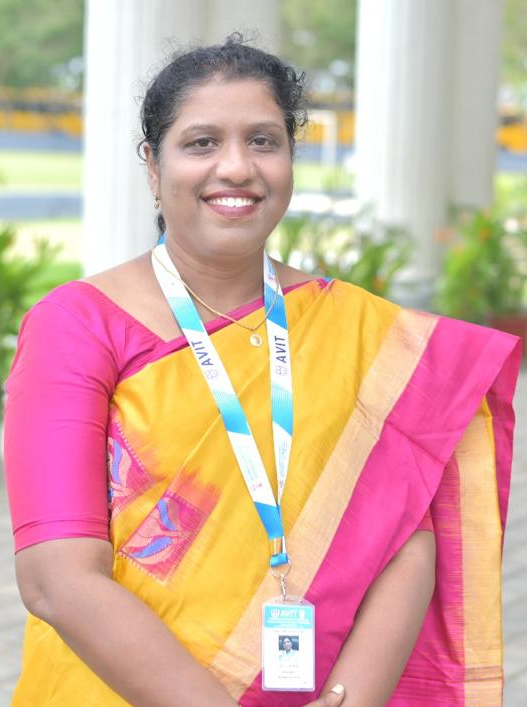
Dr. J. JANET
Aarupadai Veedu Institute of Technology
Chennai, India
Biography:
Dr. J.Janet is a visionary leader with 29
years of experience in Engineering Education
and Administration in various reputed
Engineering Institutions across the country
and presently Heading Aarupadai Veedu
Institue of Technology as Principal, and
also served as Pro Vice Chancellor in
Sanjivani University located in Kopargon
Maharasthra. In her present stint at
Sanjivani university she formulated B.Tech
Programmes in niche technologies and
Management Programs. She was instrumental in
signing MoU with Nassom and IBM powered
Programmes for niche technologies. She was
also invited by MKCL Maharasthra and
Primus,Credenza Pune for Industry Academia
Partnership in her campus. She is the
architect of implementing Industry Powered
Curriculum for UG and PG for making students
Industry Ready in cutting edge technologies.



